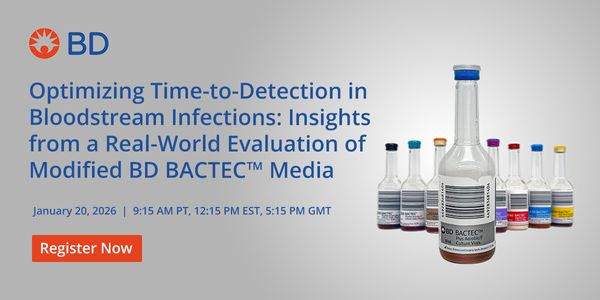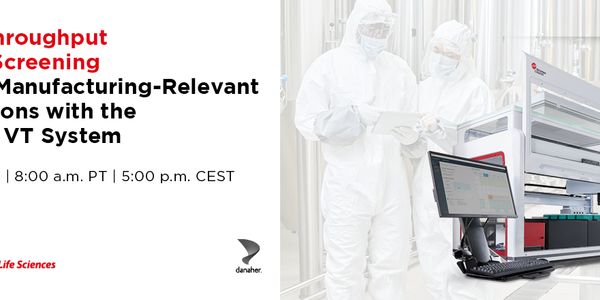Managing Editor of the journal Lupus, Chairman of the Antiphospholipid Syndrome Laboratory Diagnostics and Trends Task Force, Executive Committee Member of the APS alliance for clinical tri
BIOGRAPHY

NOV 23, 2015 7:00 AM PST
WEBINAR: New specificities in the antiphospholipid syndrome: The importance of testing for aPS/PT and anti-β2 Domain 1 antibodies (Spanish Language)
Abstract
Presence of anti-PS/PT IgG or IgM antibodies indicates a high risk category of patients
Antiphospholipid antibodies are not directed against phospholipids, but rather to phospholipid-protein complexes. Recent evidence suggests that antibodies to the complex of PS and PT (PS/PT) identifies a distinct subset of patients with very high likelihood of adverse events. Antibodies targeted to either PS or PT yield less clinically relevant information as antibodies towards the PS/PT complex.
Recent studies have shown that the risk of thrombotic events increases with the number of positive test results in APS patients and aPL carriers. Triple positivity for LAC, anti-β2GP1, and PS/PT demonstrated the highest diagnostic accuracy out of 23 possible combinations of aPL tests.
Inclusion of PS/PT testing into routine testing can improve patient outcome.
Anti-β2GP1 domain 1 antibodies are highly specific for the diagnosis of APS and may help support therapeutic decision making
Anti-β2GP1 antibodies target multiple epitopes in the same molecule. A growing body of evidence indicates that domain 1 is the most relevant epitope targeted by anti-β2GP1 antibodies in patients with APS. Many studies have shown that anti-domain 1 antibodies identify a distinct population of patients with a high risk of thromboembolic events, despite therapy. In addition, carriers are high risk to develop a first thromboembolic event.
Antiphospholipid antibodies are not directed against phospholipids, but rather to phospholipid-protein complexes. Recent evidence suggests that antibodies to the complex of PS and PT (PS/PT) identifies a distinct subset of patients with very high likelihood of adverse events. Antibodies targeted to either PS or PT yield less clinically relevant information as antibodies towards the PS/PT complex.
Recent studies have shown that the risk of thrombotic events increases with the number of positive test results in APS patients and aPL carriers. Triple positivity for LAC, anti-β2GP1, and PS/PT demonstrated the highest diagnostic accuracy out of 23 possible combinations of aPL tests.
Inclusion of PS/PT testing into routine testing can improve patient outcome.
Anti-β2GP1 domain 1 antibodies are highly specific for the diagnosis of APS and may help support therapeutic decision making
Anti-β2GP1 antibodies target multiple epitopes in the same molecule. A growing body of evidence indicates that domain 1 is the most relevant epitope targeted by anti-β2GP1 antibodies in patients with APS. Many studies have shown that anti-domain 1 antibodies identify a distinct population of patients with a high risk of thromboembolic events, despite therapy. In addition, carriers are high risk to develop a first thromboembolic event.
You May Also Like
JAN 14, 2026 | 10:00 AM
Join us for an insightful webinar to discuss a holistic approach to testing for TB in a clinical setting. Tuberculosis remains a global health challenge and accurate, timely diagnosis is cri...
JAN 15, 2026 | 8:00 AM
Personalized medicine promises to significantly improve patient outcomes, but achieving this requires a deep understanding of human health and disease mechanisms at the molecular level. The...
JAN 20, 2026 | 11:00 AM
CAR-T translational research demands precise, reproducible, and scalable flow cytometry workflows. Manual centrifugation and antibody preparation steps remain major sources of variability an...
JAN 20, 2026 | 9:15 AM
Bloodstream infections (BSIs) remain a critical challenge in clinical care, where every hour of delay in diagnosis can significantly impact patient outcomes. This webinar explores findings f...
JAN 21, 2026 | 8:45 AM
C.E. CREDITS
Lipid nanoparticles (LNPs) have become the gold standard in non-viral gene delivery technologies, exemplified by the approval of the LNP messenger RNA (mRNA) vaccines against SARS-CoV-2. Sin...
JAN 22, 2026 | 8:00 AM
Cell line development (CLD) is often a critical bottleneck in biopharmaceutical production, often requiring labor-intensive workflows and multiple sequential screening steps that extend time...
Loading Comments...
Please update your information
Certificate of Participation
Thank you for choosing Labroots. Please note that a Certificate of Participation does NOT count towards Continuing Education Credits.
DOWNLOAD CERTIFICATE
DOWNLOAD CERTIFICATE
You must watch the entire webinar to receive your certificate of participation.
You must attend the event before receiving your certificate of participation.
You must register for the event first.
Certificate is no longer available for this event.
You must be logged in to retrieve your certificate.






